#leo katcher
Text
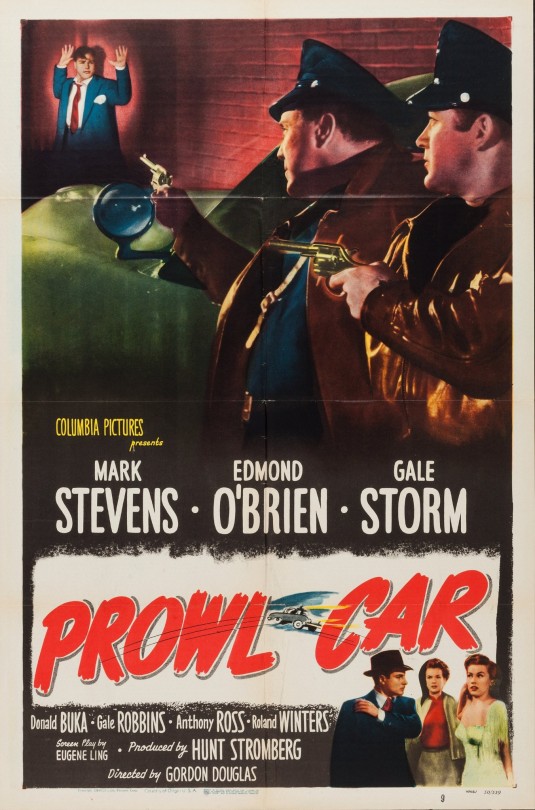
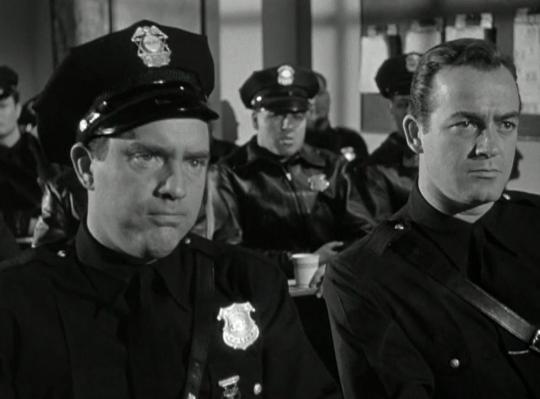
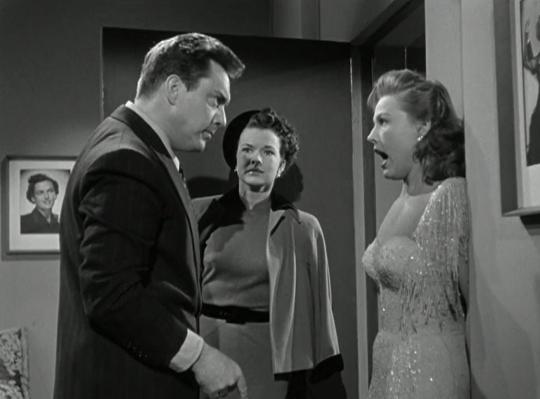


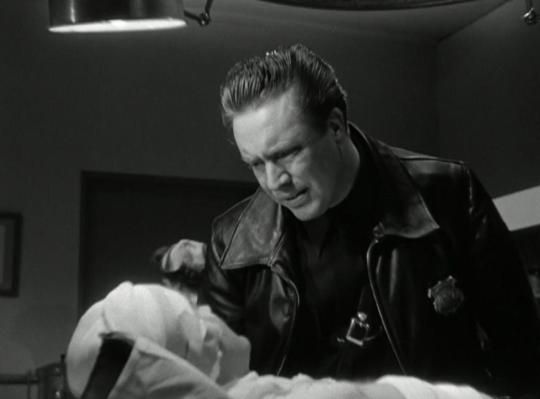
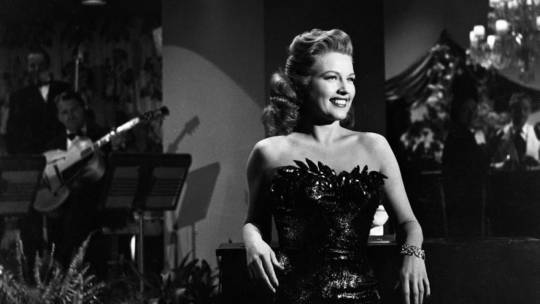

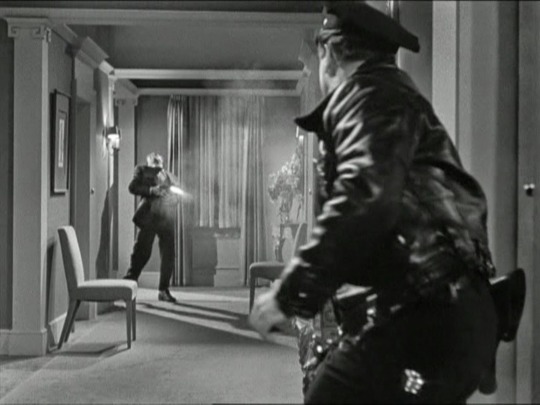
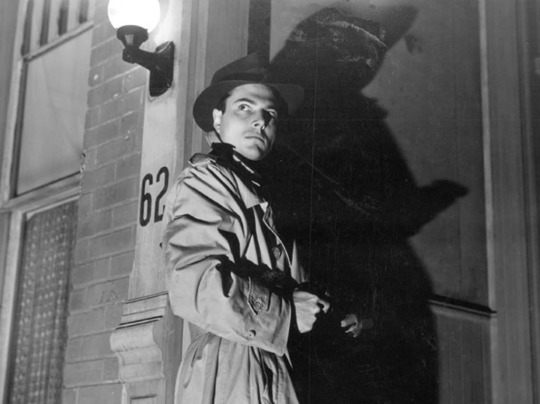
Between Midnight and Dawn (Prowl Car, 1950)
"Your girlfriend seems kinda worried about something."
"So she's afraid of cops. So what's that prove?"
"I'll tell ya later."
#between midnight and dawn#prowl car#1950#film noir#american cinema#gordon douglas#eugene ling#leo katcher#gerald drayson adams#mark stevens#edmond o'brien#gale storm#donald buka#gale robbins#anthony ross#roland winters#tito vuolo#madge blake#grazia narciso#philip van zandt#jack del rio#george duning#minor police procedural which purports to tell the story of the men on the street in uniform‚ as opposed to those flash fbi agents or other#special agents. any claims to naturalism pretty soon go out the window as our two patrolmen quickly become embroiled in a major gangwar#that sees them personally on the receiving end of a mob vendetta. slow to get moving‚ and with some awkwardly placed homelife comedy#slash melodrama‚ but this does liven up considerably in the last act (a surprisingly brutal and violent setpiece that sees bloody#justice served). O'Brien looks a little old to be a potential romantic lead in the love triangle that develops in the film‚ but actually he#would have been 34 at time of shooting (!) so i guess it's just literally his face... idk. just one of those guys who looks older than he#was. Mark Stevens (and his chin) are a much more likely love rival for Gale Storm's charms (and as an aside‚ how great a stage name is#Gale Storm? excellent choice Gale‚ real name Josephine Cottle). script delivers a few punchy lines but this is fairly disposable fare tbh
8 notes
·
View notes
Photo

The Eddy Duchin Story (1956). The life story of the famous pianist and band-leader of the 1930s and 1940s.
Another musician bio pic! There are so many! So. Many. Still, Tyrone Power is always pretty charming, and he does pretty well in the titular role (although it’s not one of his best). Otherwise though, it follows the formula of pretty much all these wartime / active musician films, and as a result it’s utterly forgettable. 6/10.
#the eddy duchin story#1956#Oscars 29#Nom: Story#Nom: Score#Nom: Sound Recording#Nom: Cinematography#George Sidney#samuel a taylor#Leo Katcher#tyrone power#kim novak#victoria shaw#James Whitmore#bio pic#biography#america#american#romance#music#musician#backstage#6/10
2 notes
·
View notes
Text

. In late November 1943, stunt doubles from various studios posed for a publicity photo.
Top row (l to r): John Moss (Errol Flynn), Gino Corrado (Leo Carrillo), Paul Bradley (Ronald Colman), Roy Thomas (Spencer Tracy), Rodney Bell (Charles Laughton)
Center row (l to r): Linda Landi (Frances Langford), Pamela Drake (Veronica Lake), Mary Miner (Irene Dunne), Ezelle Poule (ZaSu Pitts), Margaret Bryson (Loretta Young), Elaine Waters (Mary Astor)
Bottom row (l to r): Len T. Brixton (Edward G. Robinson), Robert Katcher (Peter Lorre), Sydney Chatton (Paul Muni), Rod Rogers (James Cagney)
22 notes
·
View notes
Text
Party Girl **** (1958, Robert Taylor, Cyd Charisse, Lee J Cobb, John Ireland, Kent Smith, Claire Kelly) - Classic Movie Review 8981
Party Girl **** (1958, Robert Taylor, Cyd Charisse, Lee J Cobb, John Ireland, Kent Smith, Claire Kelly) – Classic Movie Review 8981
Director Nicholas Ray’s 1958 film noir gangster thriller Party Girl has a lot to offer: a gripping story (by Leo Katcher), a great mood and atmosphere, and fine performances, with acting lightweights Robert Taylor and Cyd Charisse well cast and the splendid Lee J Cobb outstanding.
The party’s intriguing guest list includes Taylor’s crooked lawyer Thomas Farrell, Charisse’s dancing moll Vicky…
View On WordPress
1 note
·
View note
Text
The Big Bankroll - Leo Katcher
The Big Bankroll
The Life And Times Of Arnold Rothstein
Leo Katcher
Genre: True Crime
Price: $4.99
Publish Date: January 27, 2016
Publisher: Hauraki Publishing
Seller: INscribe Digital
Arnold Rothstein (1882-1928) was described in the newspapers of the 1920s as “a sportsman.” “a gambler.” “the man who fixed the 1919 World Series.” But he was much more than that. A bootlegger and labor racketeer, he corrupted politicians, promoted crooked stock sales, and imported narcotics. And, perhaps most importantly, he transformed organized crime from a thuggish activity practiced by hoodlums into a big business. run like a corporation, with himself at the top. For twenty years, the name of Arnold Rothstein symbolized money—big-time money, gambling money, racket money, illegal money, millions upon millions of dollars. His share was ninety percent of any deal; he was never indicted for a single crime: he always won at cards and horses. And, despite his involvement in dozens of murders and hundreds of other crimes, his luck never ran out. At least not until 1928, the year in which he was fatally shot. The perpetrators—and Rothstein's millions—were never found. The Big Bankroll is the definitive biography of the man known simply as Mr. Big. In it, Leo Katcher reveals not only the sordid details of the life of America's most powerful gambler, but illuminates the whole era in which crime became king. Leo Katcher was a reporter for the New York Post during Rothstein’s reign, and spent ten years researching this book, interviewing Lucky Luciano. Carolyn Behar (Rothstein's widow), and dozens of others.-Print ed. “This well-written book—part biography, part social history—is as fascinating as a dozen works of fiction, and a good deal more frightening.”—Spectator “Leo Katcher, who was a newspaperman in the days when Rothstein ruled, has brought not only the man but his times back to life. This is a vivid, fascinating book....Katcher does not glamorize Rothstein: he dissects him skillfully and explains him and his corrupt associates and the conditions which made it possible for such men to become wealthy and powerful....Katcher has done a superb job.”—Quentin Reynolds. Saturday Review http://bit.ly/2Xmg0OY
0 notes
Photo

“Arnold Rothstein gave one of his infrequent newspaper interviews in 1921. He was asked about how he became a gambler. ‘I always gambled,’ he said. ‘I can’t remember when I didn’t. Maybe I gambled just to show my father he couldn’t tell me what to do, but I don’t think so. I think I gambled because I loved the excitement. When I gambled, nothing else mattered. I could play for hours and not know how much time had passed.’ Then he added, ‘I wasn’t different from the other kids. Everyone gambled.’” - Leo Katcher, The Big Bankroll, p.20
16 notes
·
View notes
Text
SUMMARY
Martin W. Harrow (David Wayne) is a compulsive child-murderer, and the public demands of the mayor and police that he be caught. The police start a crackdown on criminal operations, dive bars and hangouts in the city, hoping that the murderer will turn up in one of the many raids. This pressure is preventing the city’s crime syndicate from doing business, and its boss, Marshall (Martin Gabel), organizes his forces to find and stop the murderer, so the police will stop the crackdown and go back to business as usual. Meanwhile, Police Inspector Carney (Howard Da Silva) has a psychiatrist examining patients who have been released from mental hospitals as possible suspects.
This slideshow requires JavaScript.
At the same time that the police focus on Harrow, finding incriminating evidence – the shoes of the dead children – in his apartment, the criminals track him down with his intended next victim. They capture him, and place him on trial by his “peers” in the Los Angeles criminal underworld. Harrow makes an impassioned plea for his life, explaining that he is unable to stop himself from committing his unspeakable crimes. Just as he is about to be killed by the crowd, the police arrive to take him away, but not before Marshall has shot and killed his alcoholic lawyer, Dan Langley (Luther Adler).
BEHIND THE SCENES
Joseph Losey had seen the original Fritz Lang’s “M” (1931 film)in Munich in the year of its release and viewed it again before shooting his own version nineteen years later. Seymour Nebenzal, the producer of Lang’s M, proposed a version closely modeled on the original script (by Thea von Harbou and Lang) but set in contemporary Los Angeles Losey was reluctant ‘I had twice refused to direct it but finally my financial situation dictated my acceptance of the project. The contract is not found but legal correspondence four years later indicates that it involved a $10,000 deferment, once the bank loan had been paid off and a number of other charges met By March 1954 Losey had received no statement of account from Nebenzal or Colombia. According to Thomas Elsaesser, Lang never forgave Nebenzal and was not prepared to acknowledge the director Losey, as a member of his profession. (Yet Lang himself was not above directing remakes)”
This slideshow requires JavaScript.
The new screenplay, by Norman Reilly Raine and Leo Katcher, was graced by additional dialogue from Waldo Salt Losey was anxious to update the psychology of the fictional child-murderer. The production file notes on Martin Harrow, the killer, dated 31 May 1950, are based on a study by Wertham and Menninger of two actual psychotic Hillers. “Harrow was isolated in his youth by religion and by poverty. He is suffering from hyper sensitivity. He was sexually attached to his mother. This resulted in frustration, hatred of father. No less simplistic is the explanation for the killer’s habit of collecting his small victims’ shoes not found in Lang’s version: the shoe and foot as sexual symbol. Losey also contributed his own abiding fixations.
And I wanted to present him as a product of a mother-dominated and materialistic society of lower middle-class America, where everybody had to be big he-men otherwise they were sissies…this man undoubtedly was a concealed homosexual, totally in conflict with everything including his own mother whom he adored and hated. This approach was in strong contrast to Fritz Lang’s.
This slideshow requires JavaScript.
A first-class crew and cast was assembled, with Robert Aldrich the assistant director, John Hubley the production designer, and Michel Michelet composing the music. The director of photography was Ernest Lazo, whose talents were ideally responsive to Losey’s.
Peter Lorre, who had played the psychopathic killer in Lang’s film, later joined the German refugee colony in America, Losey had employed him in The Day of Reckonitig radio series for NBC, but, writing to Brecht in May 1948, he dismissed Lorre as unacceptable for a remake of M because he is now regarded by the American movie public is a clown! To play the child killer, Losey chose David Wayne, an actor mainly associated with high comedy parts – Losey had seen him on the stage in Finan’s Rainbow. A fine supporting cast included Luther Adler, Howard da Silva, Martin Gabel and Karen Morley.
This slideshow requires JavaScript.
The film was shot on location in downtown Los Angeles, including the now demolished Victorian neighborhood of Bunker Hill. David Wayne’s character lived at an eccentric Victorian mansion on Bunker Hill Avenue known as the Max Heindel house because Heindel, a famous astrologer in the early 20th century, had once lived there. Some scenes were shot on and around the funicular Angels Flight on Third Street. The most spectacular footage occurs in a lengthy sequence shot inside the Bradbury Building on the southeast corner of Broadway and Third, a block east of Angels Flight. Director Losey used the basement, the distinctive stairways and balconies, and the roof of the building.
Substantial themes were cut from Lang’s final scenario, including the gangster leader’s denunciation of liberal law courts and soft justice. Lang was staring at fascism, Losey’s chief racketeer seeks to exploit public gratitude and so get a grand jury off his back. Lang was trading in metaphysics, Losey in urban pragmatism. Whereas Peter Lorre’s pop-eyed, demented killer breaks off from his compulsions to chuckle over a whole city’s fruitless search for him, David Wayne steps over the screaming headlines like a stranger to himself. Wayne has a psychiatric history, Lorre was born to the devil.
youtube
CAST/CREW
Directed
Joseph Losey
Produced
Seymour Nebenzal
Written
Waldo Salt (additional dialogue)
Screenplay
Norman Reilly Raine
Leo Katcher
Starring
David Wayne
Howard Da Silva
Luther Adler
Music by Michel Michelet
Cinematography Ernest Laszlo
David Wayne as Martin W. Harrow
Howard Da Silva as Inspector Carney
Luther Adler as Dan Langley
Martin Gabel as Charlie Marshall
Steve Brodie as Lt. Becker
Raymond Burr as Pottsy
Glenn Anders as Riggert
Karen Morley as Mrs. Coster
Norman Lloyd as Sutro
John Miljan as Blind Ballon Vender
Walter Burke as MacMahan
Roy Engel as Police Chief Regan
Benny Burt as Jansen
Leonard Bremen as Lembre (as Lennie Bremen)
Jim Backus as The Mayor
Janine Perreau as The Last Little Girl
Frances Karath as Little Girl in Hallway
Robin Fletcher as Elsie Coster
Bernard Szold as Bradbury Bldg. Watchman
Jorja Curtright as Mrs. Stewart
“M” (1951) Retrospective SUMMARY Martin W. Harrow (David Wayne) is a compulsive child-murderer, and the public demands of the mayor and police that he be caught.
0 notes
Quote
Before I'd be a tool like you, I'd jump into the Hudson River.
Arnold Rothstein to attorney William M. Chadbourne in The Big Bankroll
#arnold rothstein#leo katcher#the big bankroll#quote#okay so whatever all irks me#this gave amusement.#much much amusement.
27 notes
·
View notes
Text
Rothstein Books
Just got through reading David Pietrusza's Rothstein book. I really enjoyed it, save for the occasional prolonged tangents the author would go off on about people/ subjects only moderately related to AR. I most enjoyed the bits that gave insight into his personal life and character and, unfortunately, I felt those were rather lacking. I understand, also, just from following a ton of knowledgeable Rothstein fans, that he was rather an enigma, and though a lot of people knew him, very few people actually KNEW him. That comes through very clear in the book. Still, I find myself going through a mild period of obsession at the moment, and the Pietrusza book has not sufficiently satisfied my Rothstein craving. Has anyone read the Leo Katcher Big Bankroll book? I am thinking of picking it up, and I am wondering how it compares to the Pietrusza book. Anyone?
6 notes
·
View notes
Text
am slowly slowly reading some chapters from Leo Katcher's book because Fallon, and i just... often want to punch the book in the face, though of course it isn't the book's fault. mostly the fault of my own ridiculous mind. maybe.
Katcher's tone irks me, as does his... i guess would call it a tendency to level judgments all over the place. like I AM PAINTING A VERY PARTICULAR PICTURE and... allowing suggestions of other reads, but mostly blocking all with a lens of 'this is what i think and this is what sounds slick.' which is, eh, just my opinion or whatever.
so anyway. book itself is The Big Bankroll. have been noting in the margins and on plurk, and am copy-pasting my scattered plurk notes here becauuuse i do use this for reference purposes. so here are some scattered whatevers, noting of course that i have my own strong biases and approximately 0% expertise on anything. hurrah.
so Katcher hits some valid painful fucking points about Fallon
but he's also like
got some major antagonism/fuck you going toward Fallon
which is probably fair
but makes me bristle.
a lot.
like yeah i dig the thought that he was trying to live up to an image of himself that he couldn't actually attain and knew he couldn't attain. for various-various reasons.
and he could be a complete fucking child.
and responsibility was not so much a strong suit at all.
but i really, really don't think he's on point using the dummy/ventriloquist image for Fallon and McGee. which... i don't have a wholeeee lot of backing for. but all of the Fowler and newspaper reading just... suggests otherwise. pretty strongly. especially since Fallon spent a decent span of time not with McGee. and... really seems to have, you know, had pretty stellar faculties of his own. just a problem of lacking direction.
among other problems, sure.
OKAY SO BASICALLY I AM IRRITATED BY THAT COMPARISON AND THE BASIC TONE HE USES TO SPEAK OF FALLON AND IT MAKES GETTING THROUGH THIS TRICKY
but also, again, some fine thoughts to keep in mind and to jump ideas off of, so.
"Fallon pawned his soul for another drink."
ahahahahah
ha
...ha.
except actually for other reasons/ends i think and THIS is something that gets me, the flippancy and just... this "i'm making statements because they sound great-glib" sense that i get off of Katcher's writing. which might just be my imposition, but. rgh.
"The fantasy was larger than the man, demanded too much of him. When Fallon found this out he took to drinking too much. Drunk, at least he did not have to see himself clear."
again, seems partly dead-on, partly far too fucking cut-and-dry. am always wary of taking any of these books and articles as truth, per say... and this one. will probably call most of this half-possible, words that suggest some sort of truth while missing a fuck of a lot. which is fine. which is valuable. but which also just rghhhhhhhhhh.
"He was paid by Rothstein to do Rothstein's bidding. He resented this, took out his resentment in bitterness and sarcasm, like a small boy drawing caricatures of the teacher on the schoolboard."
okay, so that
last part seems pretty apt. parts of the first. hmhm.
"Gene McGee said of Fallon, 'He lived as if he were afraid the light would go out any minute and he wouldn't have another quarter to put in the meter.'"
GENE WHEN DID YOU SAY THIS AND TO WHOM now i must know. damnit.
"Fallon had no self-respect and sobriety showed him he could not believe in himself."
ehhhh... the more i think on this... again, partly yes, but something about it seems far the fuck off.
like egh i think there was doubt at play, especially as he fell further into the thorn-tangle of New York life, but it seems... not apt that all of his self-confidence was manufactured. the balance there is something for me to think on, yes.
"He was personally unclean."
wtf does that mean?
"Fallon had no respect for money, only a great need for it. That was his weakness and Rothstein exploited it."
a weakness, anyway. and, well... sure.
i don't know about your downplaying Fallon's own legal knowledge, kiddo. i do not know.
gdi Arnstein: "I don't hate Fallon and I'm not bitter about him. How can you hate, or be bitter about, a dead man? He let me down, but that was long ago."
taking that for whatever it's worth, 'course.
yeah but giving money to Fallon for a haircut won't do a damn bit of good because no barbers. clearly, this is an important point to make shut up shut up it totally is.
1 note
·
View note